
I just finished reading The Pragmatic Programmer by Andy Hunt and Dave Thomas, and let me tell you—it was a game-changer! This book is a must-read for anyone in the IT field. I know how tough it can be to find time for reading with our busy schedules, so I’m excited to share insights from the book in my upcoming blog posts. Let’s dive into the first chapter, “A Pragmatic Philosophy,” and see what it offers!
What Does Pragmatic Mean?
- The term “pragmatic” comes from the Greek word pragmaticus, meaning “skilled in business.”
- It’s all about improving your skills and understanding the craft of programming.
It’s Your Life:
How Can You Handle the Steering Wheel of Your Work and Career
- In the world of software development, you have incredible opportunities to shape your own career.
- If you’re unhappy with your current situation, don’t wait for change to happen—be proactive!
- Seek out new projects, learn new skills, and advocate for yourself.
The Cat Ate My Source Code: What Does It Mean to Take Ownership of Your Career and Mistakes?
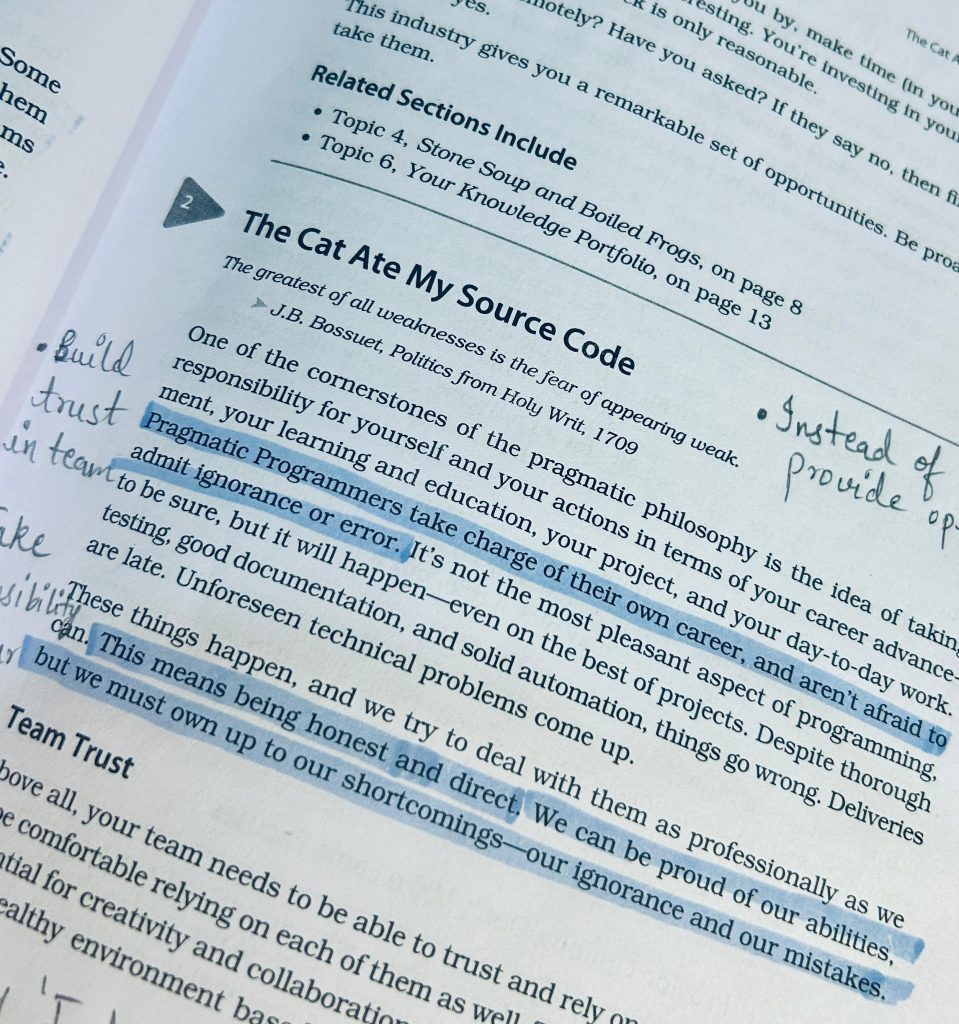
- One key principle discussed is “The Cat Ate My Source Code.” This is about taking responsibility for your actions, career advancement, and daily tasks while being honest about your shortcomings.
- Accepting responsibility means you actively agree to own your work but remember: you don’t have complete control over its success.
- If you take on a challenging task, you can’t shy away from accountability.
- Instead of making excuses, focus on solutions and options.
Why Small Issues Can Snowball into Big Problems
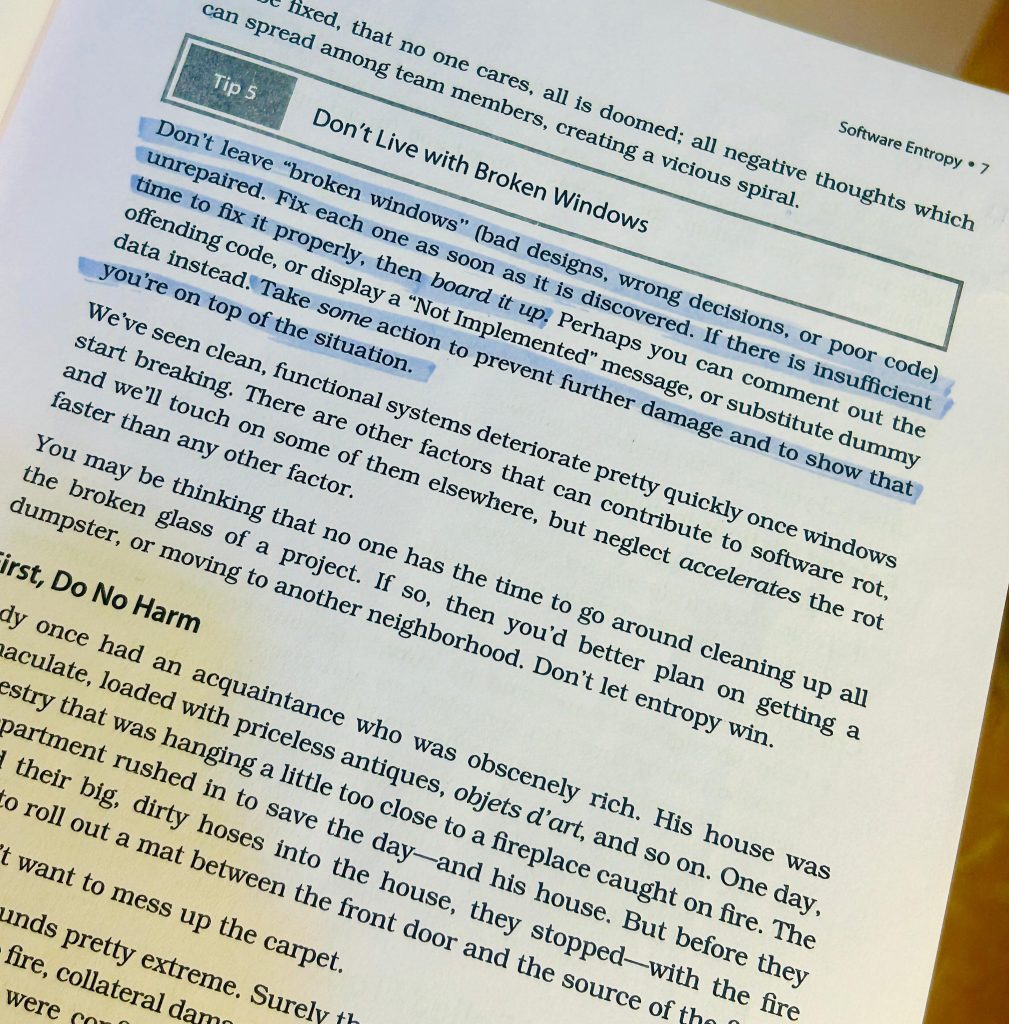
- Ever heard of the “broken window” theory? It’s the idea that a small flaw in your code—like a neglected bug—can snowball into a much larger issue.
- Just like a broken window can lead to a neighborhood’s decline, unaddressed issues degrade your entire codebase over time.
- Instead of diving headfirst into big tasks that feel overwhelming, try starting small. Break things down into manageable steps.
- This way, you avoid that burnout feeling right from the start and can build momentum as you go.
- Taking it one step at a time often makes the process smoother and more achievable!
What Does “Good Enough” Software Look Like?
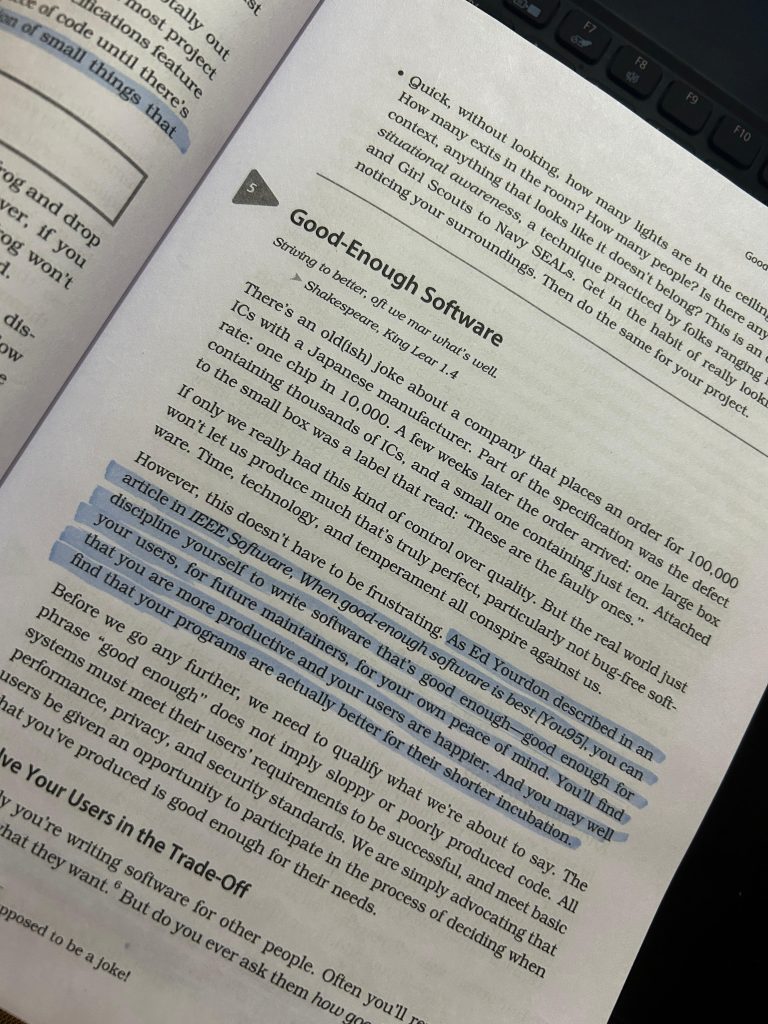
- Perfect software is a myth. Clients don’t need perfection—they need something that works now. Making your code perfect may upset the client as well as exhaust you.
- Good enough software today often beats perfect software tomorrow.
- That’s why it’s crucial to focus on what’s good enough for the client, the user, the team, and yourself.
- Ask users how good they expect the software to be, meet those expectations, and stop improving when you’ve hit that sweet spot.
How Do You Overcome Project Stagnation?
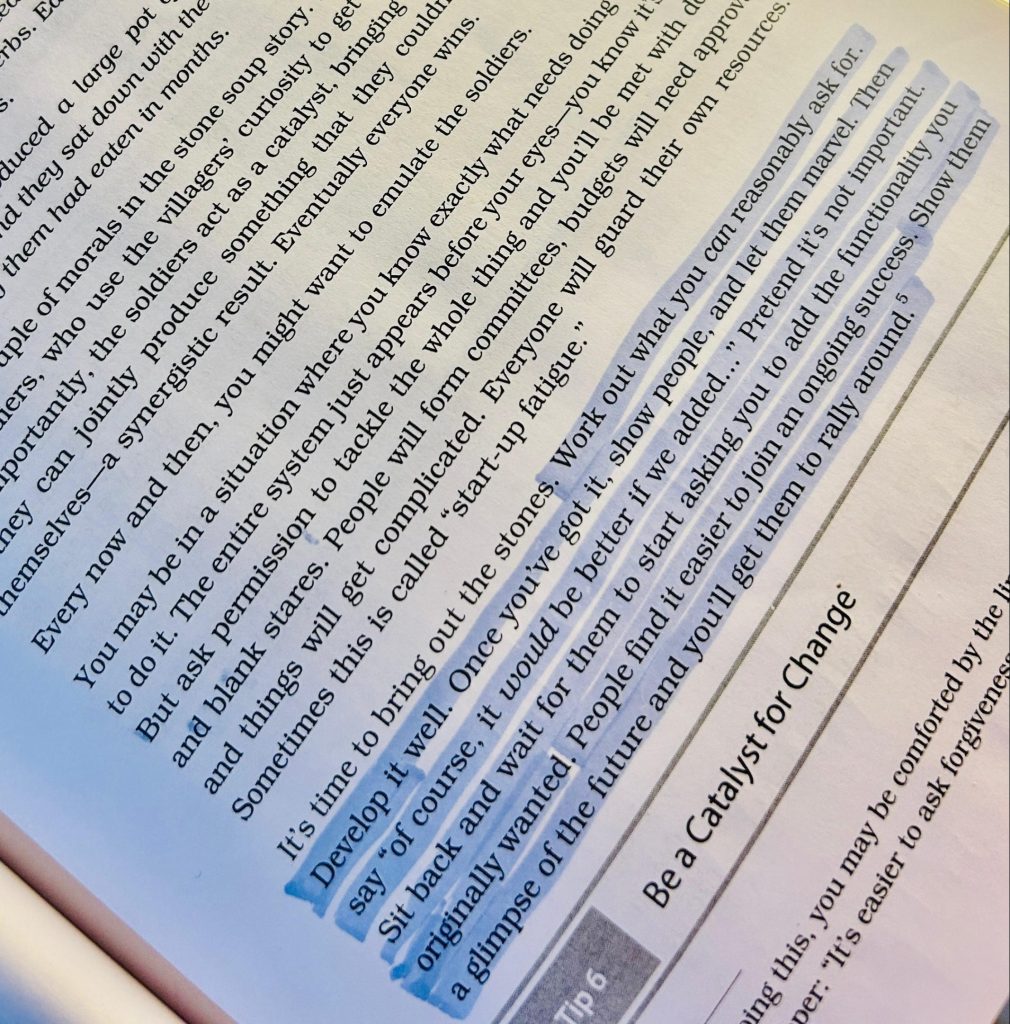
- Feeling stuck while waiting for approvals or resources can be irritating.
- Instead of letting this frustration hinder your progress, focus on what you can achieve independently.
- Start small, build something, and share it to generate excitement.
- This proactive approach keeps the work going and encourages collaboration.
How Can You Build and Manage Your Knowledge Portfolio?
- Your knowledge portfolio is one of your most valuable assets, but remember, it has a half-life.
- Regularly invest in it by learning new skills and managing a mix of high and low-risk areas.
- Consider learning a new programming language each year, reading technical and non-technical books, attending user groups and conferences, and keeping up with industry trends.
- The more diverse your portfolio, the more valuable you become.
Remember, Communication is the Key
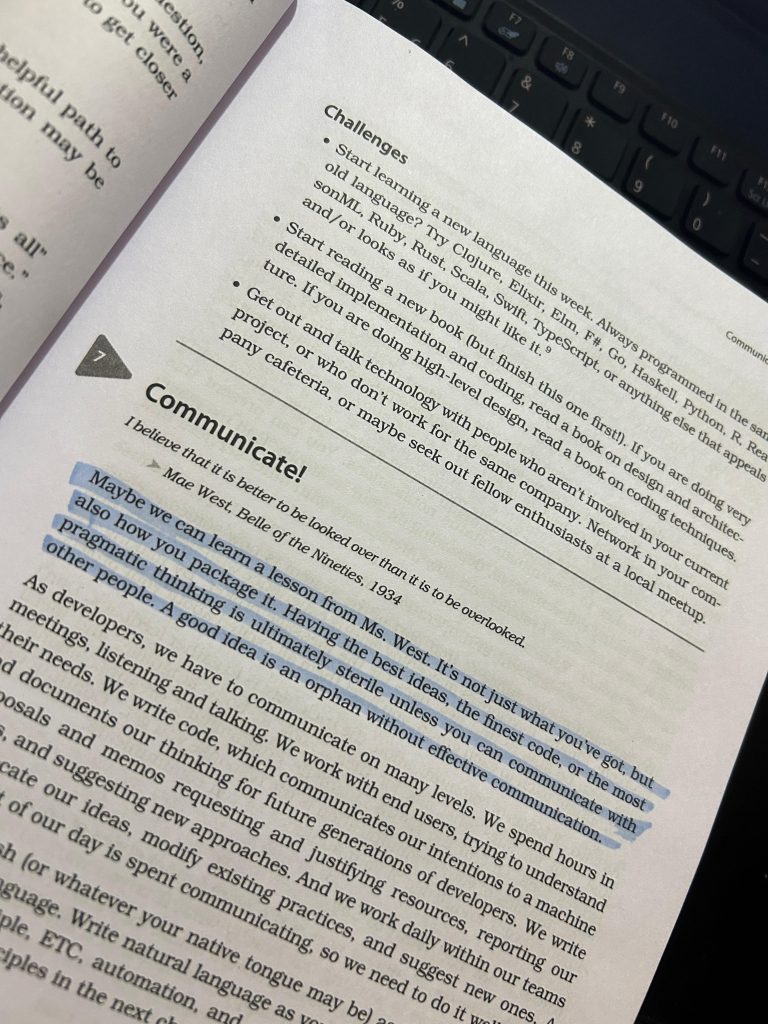
- Finally, effective communication is essential for any developer.
- Remember, you’re only communicating if your message is received.
- Know what you want to say, understand your audience, and choose the right moment and style for your message.
- Make it visually appealing and involve your audience in the discussion.
- Listening is just as important—make sure to get back to people and keep the conversation flowing.
The Pragmatic Programmer offers timeless lessons for anyone looking to level up their programming game. From taking ownership of your work to understanding the importance of good communication and continuous learning, this book covers it all.
The key takeaway? Be proactive, focus on what matters, and know when to stop perfecting things. It’s about being smart with your time, skills, and efforts to build both great software and a fulfilling career. So, follow Tech with Jatin to become a Pragmatic Programmer!
Also, if you are looking to switch your career from manual testing to automation testing, then check out my SDET Masterclass which is designed to solve all your software development-related problems!